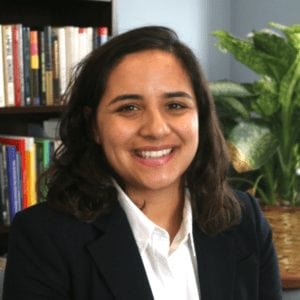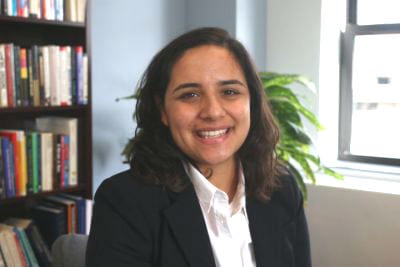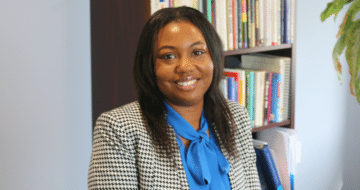
Jesse Kannam, AYPF Policy Associate
“A day on, not a day off.” This is the Corporation for National and Community Service (CNCS)’s slogan for the Martin Luther King Jr. Day of Service. The third Monday of January each year is not only a federal holiday, but a national day of service, designated as such by Congress in 1994. Congress assigned CNCS to lead efforts on this day to promote and support service in communities in honor of Dr. King’s legacy. Hundreds of thousands of people participate in the Day of Service across the United States each year.
CNCS and organizations such as Service Year Alliance and City Year are dedicated year-round to leveraging service as a strategy to advance the lives of students and communities across the country. AYPF collaborated with Service Year Alliance in 2018 to host a three-part webinar series on the role and benefits of national service programs. The first webinar highlighted the immense support that national service programs provide to students both in and out of school throughout their educational journey, and the potential for these programs to reduce educational disparities and improve educational outcomes across the nation. The second webinar focused on how a service year can prepare young adults for the workforce and be a mechanism for increasing employment opportunities for young adults. The third and final webinar in the series shared how service year programs help build and increase the long-term capacity of nonprofits by assisting with efforts like fundraising, volunteer management, and community outreach.
The series demonstrates the multifaceted benefits of service both for the individuals that serve and the communities where they serve. Let us explore how service can be utilized to expand access to education and workforce opportunities for traditionally underserved youth, and how states can leverage this opportunity.
Pathway for Opportunity Youth
Service programs can be a pathway for youth disconnected from school and work, otherwise known as opportunity youth, to reengage with education, participate in job training and skill development, continue to develop their social network, and become exposed to new career and workforce opportunities. Approximately one third of full-time service year positions are targeted towards opportunity youth, through programs like youth corps and YouthBuild. Service Year Alliance has produced various resources, such as the recent publication Investing in Service Years: A Strategy to Ensure the Future Success of the Nation’s Opportunity Youth, highlighting how service can be a mechanism for opportunity youth to complete secondary education and pursue college and careers.
The brief explains how various stakeholders, including federal and state policymakers, can increase the number of opportunities available for these youth to participate in national service programs. These strategies include increasing the living allowance and other benefits to enable accessibility to low-income youth, increasing scholarship funding, experimenting with strategies to address the retention of service members who experience personal crises, and encouraging integrated funding across different youth serving state and federal agencies. Additionally, as AYPF’s Executive Director, Betsy Brand, mentioned in a previous post, states can be creative in how they use federal funds allocated under legislation and grants, including ESSA, Perkins, and the Family First Preventions Services Act (FFPSA).
Equity Missions and Goals: Supporting the Next Generation of Diverse Leadership
As an avenue to engage with employers, gain valuable workplace skills, and explore career opportunities, it is clear the many benefits that a year of service can afford someone. Hosting agencies and organizations can use service years to intentionally engage and expose underrepresented populations to certain fields (such as education and nonprofit management), and civic leadership.
Public Allies, as an organization, has utilized service as a way to achieve their mission “To create a just and equitable society, and the diverse leadership to sustain it.” Public Allies does so through their AmeriCorps Ally program. The Ally program lasts 10 months and includes nonprofit capacity building through an apprenticeship at a local nonprofit, participation in a leadership development curriculum with others in their cohort, and work with their cohort and community members on a community project. The program operates in 25 cities with 92% of the class representing groups traditionally denied access to leadership positions. Over half of the cohort are women, 84% are people of color, 22% identify as LGBTQ, and 38% do not have a postsecondary degree. Allies report their experience has affected their career plans and goals, and over 90% of the Allies report engagement in work, postsecondary education, or service 90 days prior to the program.
State and local agencies should consider how they can partner with service programs or directly host service members within their state and local agencies, with special attention to how it can advance their equity goals. Public Allies utilizes service to help advance their mission of expanding access to public service and supporting the leadership development of traditionally underserved youth to allow for diverse leadership that is representative of the community.
Let us commit to make today a “day on” – by considering how service can be leveraged for equity within our own communities! Here are a few questions to get you started.
- Are there service members in my community? If so, what are they doing and how can their work be utilized more effectively?
- How can state agencies and departments within my state leverage service corps members?
- How can service years, and the many benefits that come with serving, continue to be more accessible to various youth populations?
- What are my state’s equity goals, and how can service help reach those goals?



